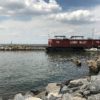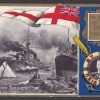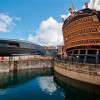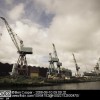It’s easy to bury New York City underneath a list of superlatives. On this visit, my Airbnb was in Astoria, offering me the refreshing, if fleeting, experience of living in Alexandria Ocasio-Cortez’s Congressional district. On a Saturday night, I took the 7 train out to Queens Night Market. The Night Market is something like a […]








